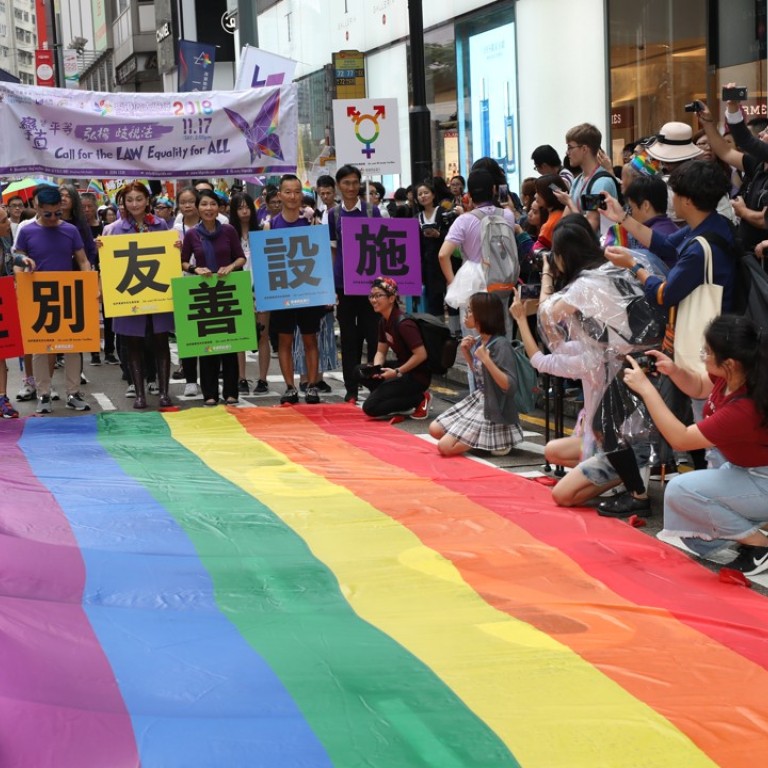
LGBT students face so much prejudice in Hong Kong they’re afraid to reveal their sexuality
- Student advocacy group members say sexual minorities deal with stigma on a daily basis
- They blame inadequate sex education, religion and traditional Chinese culture for the way they are treated
A toxic mix of religious dogma, social ignorance, government inertia and traditional Chinese culture means LGBT students at Hong Kong universities are facing prejudice, stigma and inequality on a daily basis.
That was the view of straight and LGBT students who took part in this month’s Hong Kong Pride Parade, which took as its theme “call for the law, equality for all”, and demanded legislation to protect the rights of LGBT people and outlaw sexual discrimination in the city – a law change widely regarded as being long overdue.
Safe places for LGBT people to go on holiday? There’s an app for that
Students say homophobia remains rife in Hong Kong, and university campuses are no exception.
“I am very open but people still make jokes about my sexuality,” says 19-year-old Ricky Yim Chun, who is studying at Hong Kong University of Science and Technology.
Chun is president of Action Q, an LGBT student advocacy group which was formed in 2014 and has about 70 committee members spread across all the city’s universities. As well as organising events and promoting LGBT rights, the group provides a sheltered space for young students, who are often living away from home for the first time, to talk about their own sexuality.
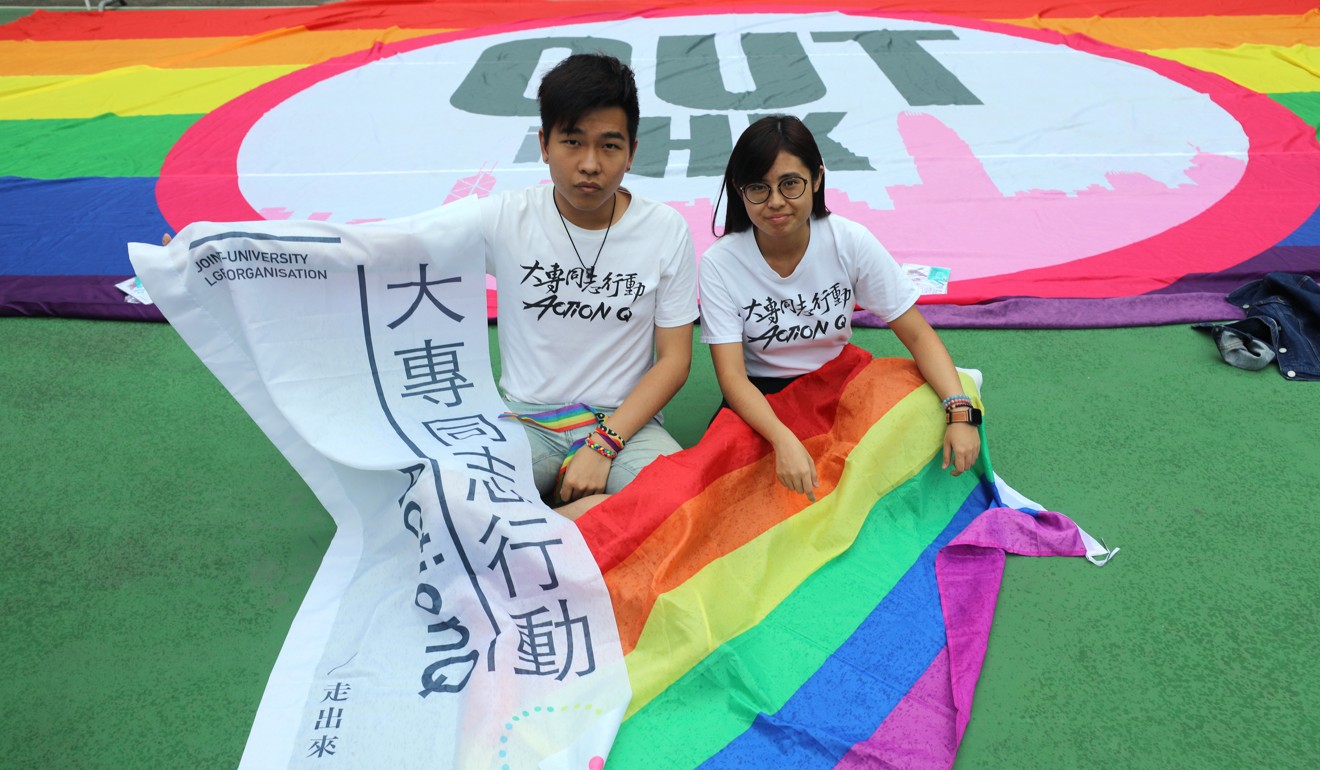
“Action Q is a safe community for me to be how I really am,” says Chun. He says many LGBT students are unable to be themselves, either among their family members or good friends on campus.
“Only two of my closest friends at university know about my sexuality,” says Carmen Li Ka-man, a third-year student at Shue Yan University, who is vice-president of Action Q.
“If I have a relationship, I feel I have to conceal it and act like a secret agent,” she says.
‘Sesame Street’ writer finally reveals how gay relationship inspired Bert and Ernie
“If we wanted to have a simple kiss, we have to find some secluded place. It feels like sin,” she adds, appearing horrified when asked about the prospect of ever kissing her partner in public.
“It would be totally awkward. I would never do anything more than hold hands, and even then I would be scared in case I was seen by someone in my family or by a member of the university staff,” she says. She fears they would ridicule her in front of her classmates, Li explains, or even give her a bad grade if they discovered her sexual identity.
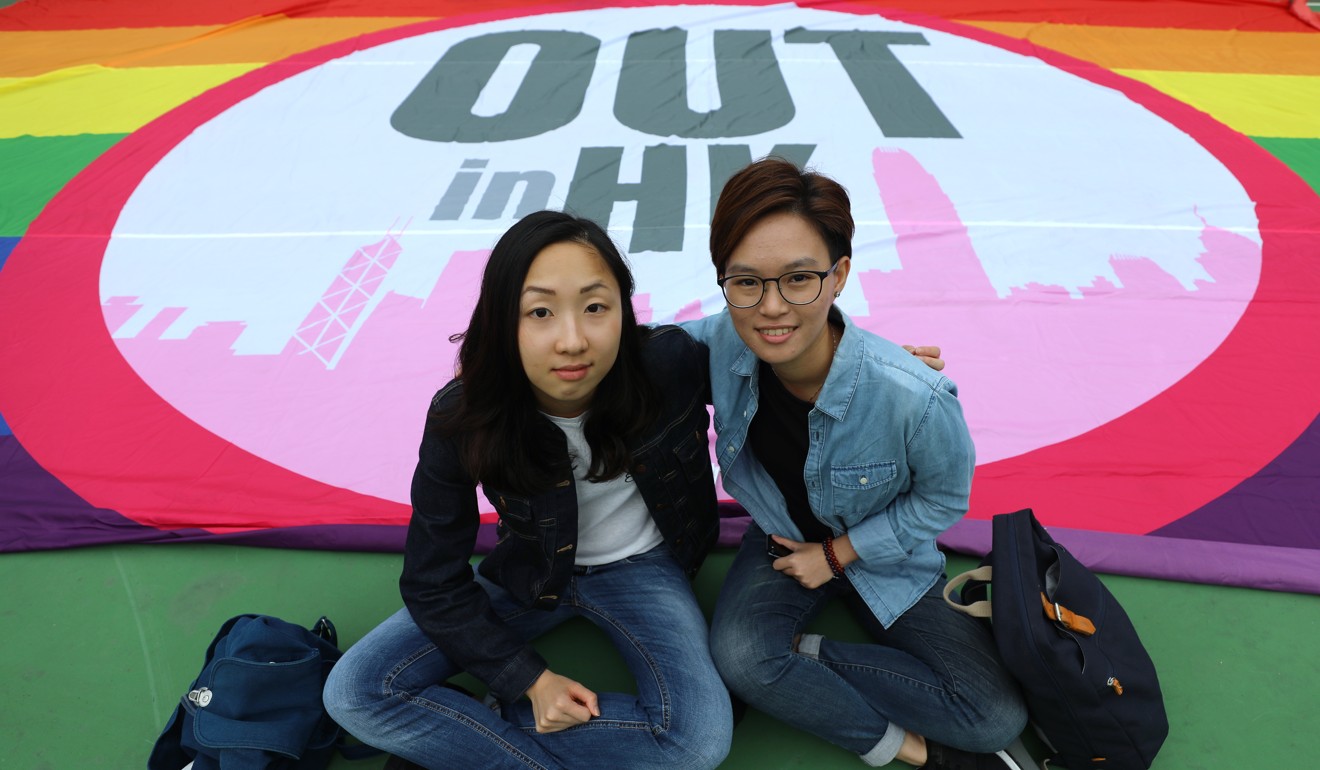
Students argue that ignorance of sexual diversity results from a lack of understanding and inadequate sex education at secondary schools, and the taboos about sex in Chinese culture.
Rather than the pride shown at the parade on November 17, the day-to-day reality for many young LGBT students is prejudice. The youngsters find themselves coping with a brutal climate of fear and shame, while struggling to come to terms with their adult sexual identity.
If I have a relationship, I feel I have to conceal it and act like a secret agent. If we wanted to have a simple kiss, we have to find some secluded place. It feels like sin
Wong Suet-nam and Chow Ying-pik, both aged 20, are third year students at Chinese University of Hong Kong and this year attended the pride parade for the first time.
“I can only talk about sexual issues within an LGBT group at university, not with my family and not with outsiders,” says Wong, who admits that it is largely a matter of self-censorship, driven by a fear of negative public reaction and rejection.
It’s a ban on my human rights and freedom of expression because I just want to be me and talk freely, but I just can’t,” she says. “That why the legislation is so important.”
Wong worked for a large welfare NGO before starting her university course and points out that much of Hong Kong’s welfare system is delivered by NGOs with religious and Christian affiliations. She says all of these organisations avoid the issue of gender and sexual minorities in an act of mass denial. It means the current medieval attitude towards sexual equality and gender diversity in Hong Kong is allowed to flourish unchallenged.
“That’s why sexual minorities and gender issues are not on the political agenda in Hong Kong, like housing, transport or democracy,” she says.
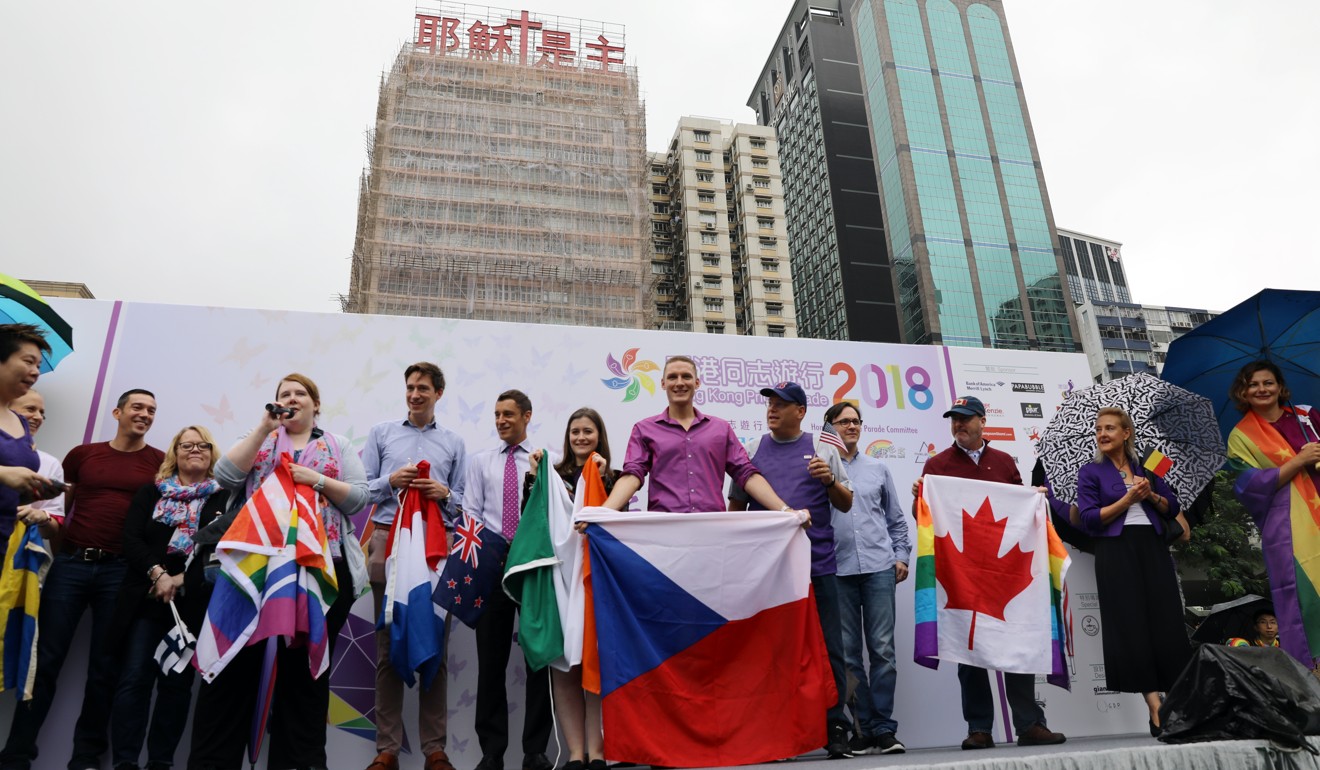
Many students are of the view that there is a strain of fundamental religious bigotry in Hong Kong that permeates from the Legislative Council down to university campuses and the delivery of social services.
Chow detects a negative attitude towards LGBT people from people inside and outside university, and “felt pressure” in the way people looked at her when she was helping members of Action Q set up an information booth at the parade.
“The way people look at me makes me feel uncomfortable, and even within universities some students are homophobic,” she says.
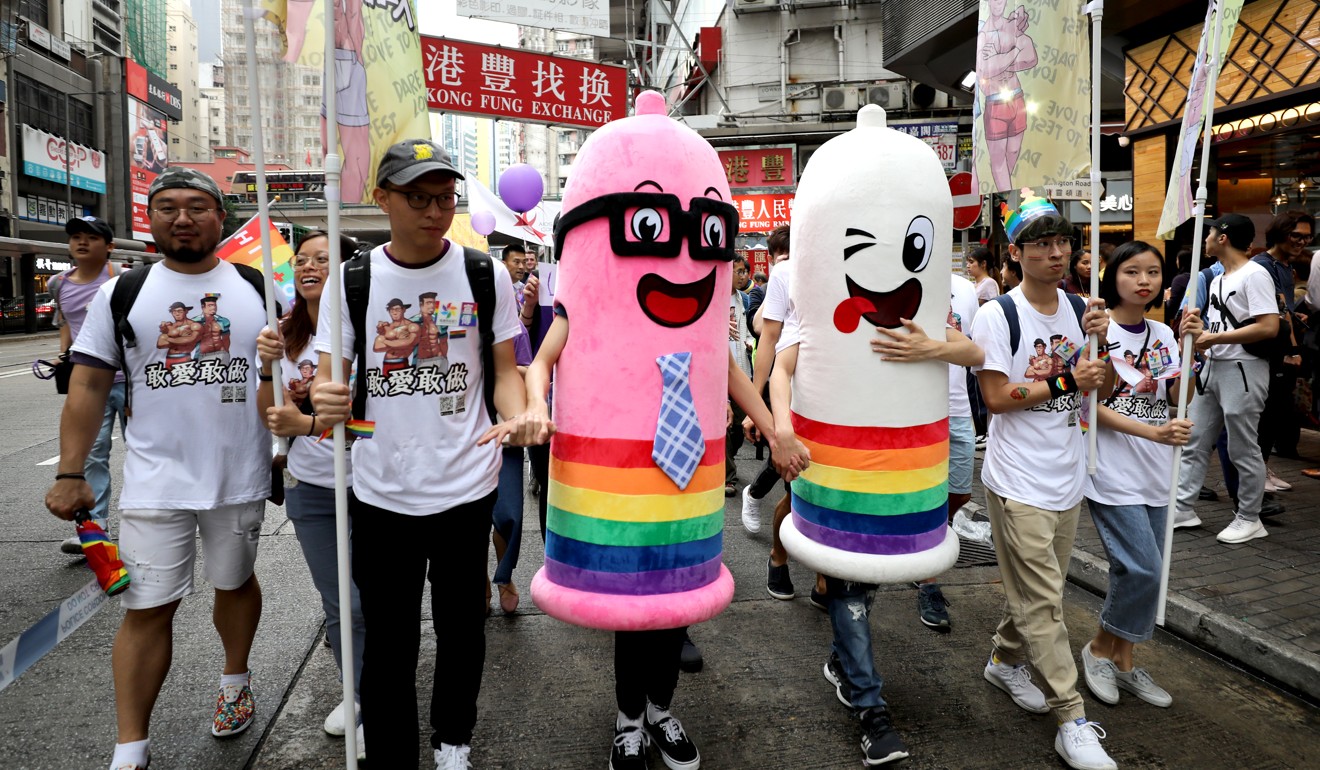
She points to the lack of sexual education for secondary school students. At her school, she adds, there was no education about sexual minorities. Many think the ignorance resulting from this situation is at the heart of the public’s discomfort about sexual diversity, Chow says.
“At high school in Hong Kong, LGBT and sexual diversity is completely ignored in the [sex-education] curriculum,” says Chu Ho-ting, who is part of a colourful delegation from the Arts Association of the University of Hong Kong student union.
At Christian-affiliated high schools like the one he attended, he says, an actively hostile attitude towards sexual minorities is not only permitted but encouraged, and this has an impact at university level too.
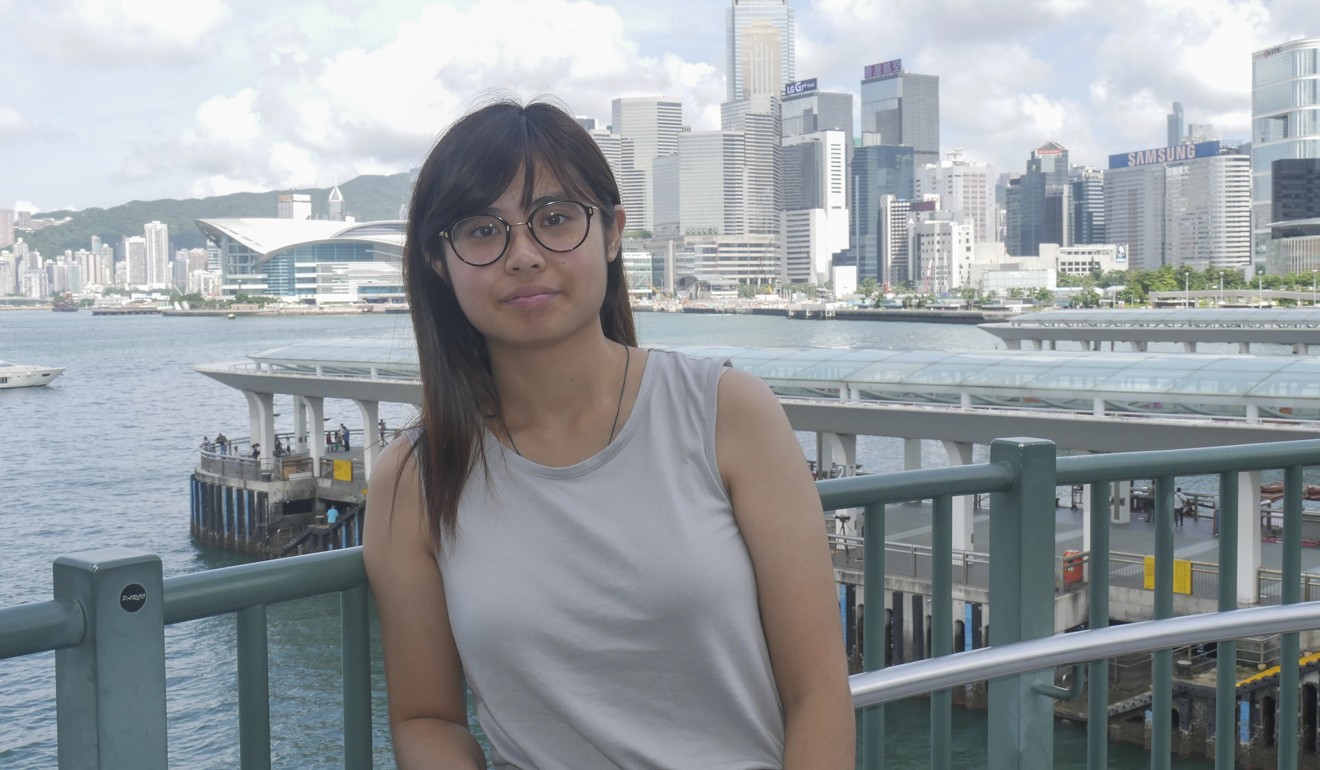
“University of Hong Kong is very international, but it is still highly conservative about LGBT issues,” he says, adding that there is a lack of information for LGBT people at the university.
Both Chu and his peers have noticed that many people are still actively hostile towards sexual minorities, and that they create a stigma for LGBT people on the city’s campuses.
Jackie Chan’s daughter marries internet celebrity girlfriend Andi Autumn
As a result there are sexual minorities at university living in a climate of fear while trying to study and progress in their careers. While most tertiary institutions have a counselling service, students at several universities say none of them specialise in LGBT issues or advertise help for sexual minorities.
Alexis Yip Ching, a student at Hong Kong University of Science and Technology, recently founded the LGBT support group Rainbow Bird. It has 10 full-time members, but she says up to 300 people will attend their LGBT events.
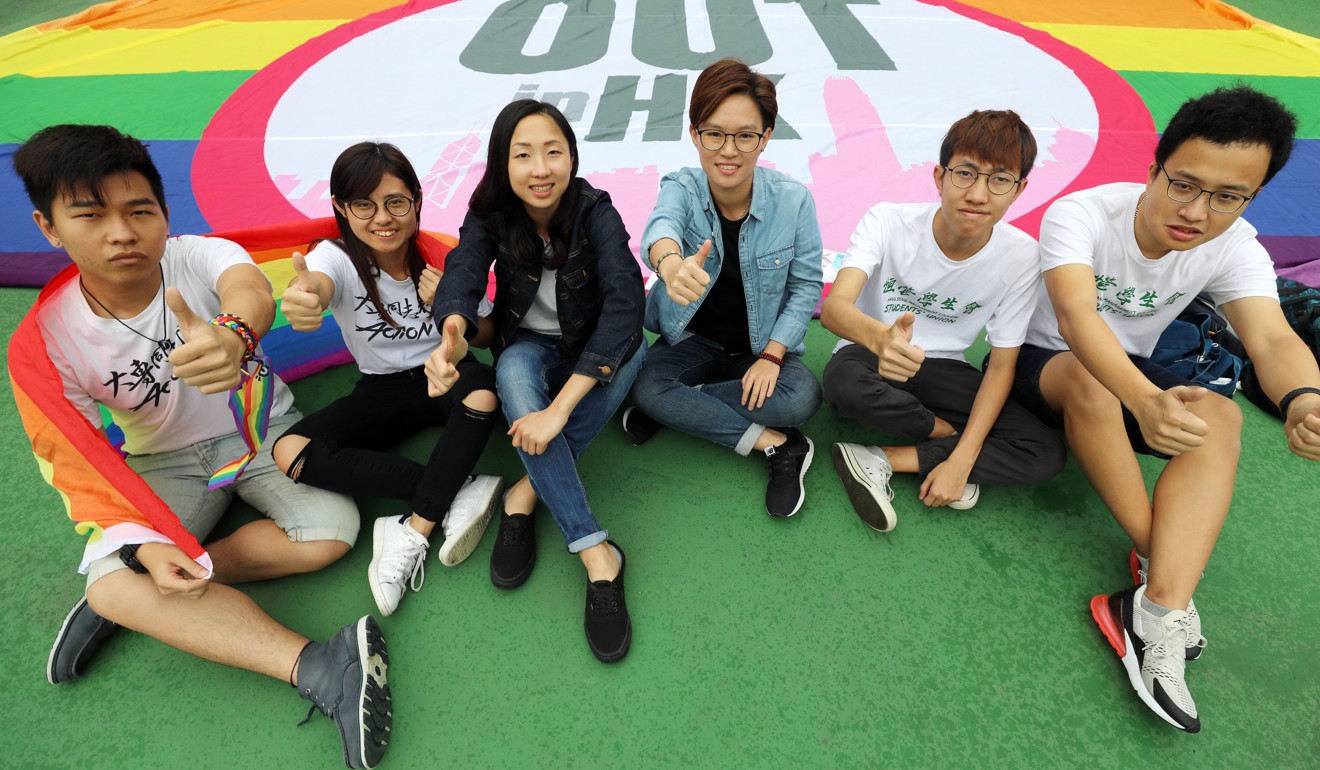
Yip set up the organisation because of the inadequate support for LGBT people at the university, she says, adding that its authorities are typically very quiet on sexual diversity and equal rights – and this has a direct impact on her job opportunities.
“Not getting a job because of my sexuality is a real issue for me,” says Yip, who hesitated over listing her achievements with the Rainbow Bird in her résumé in case it “worked against me”.
She inquired with a university career adviser if she should include these activities, to demonstrate her commitment to social justice and her ability to found new organisations. She was advised only to include the information on “selected applications”.
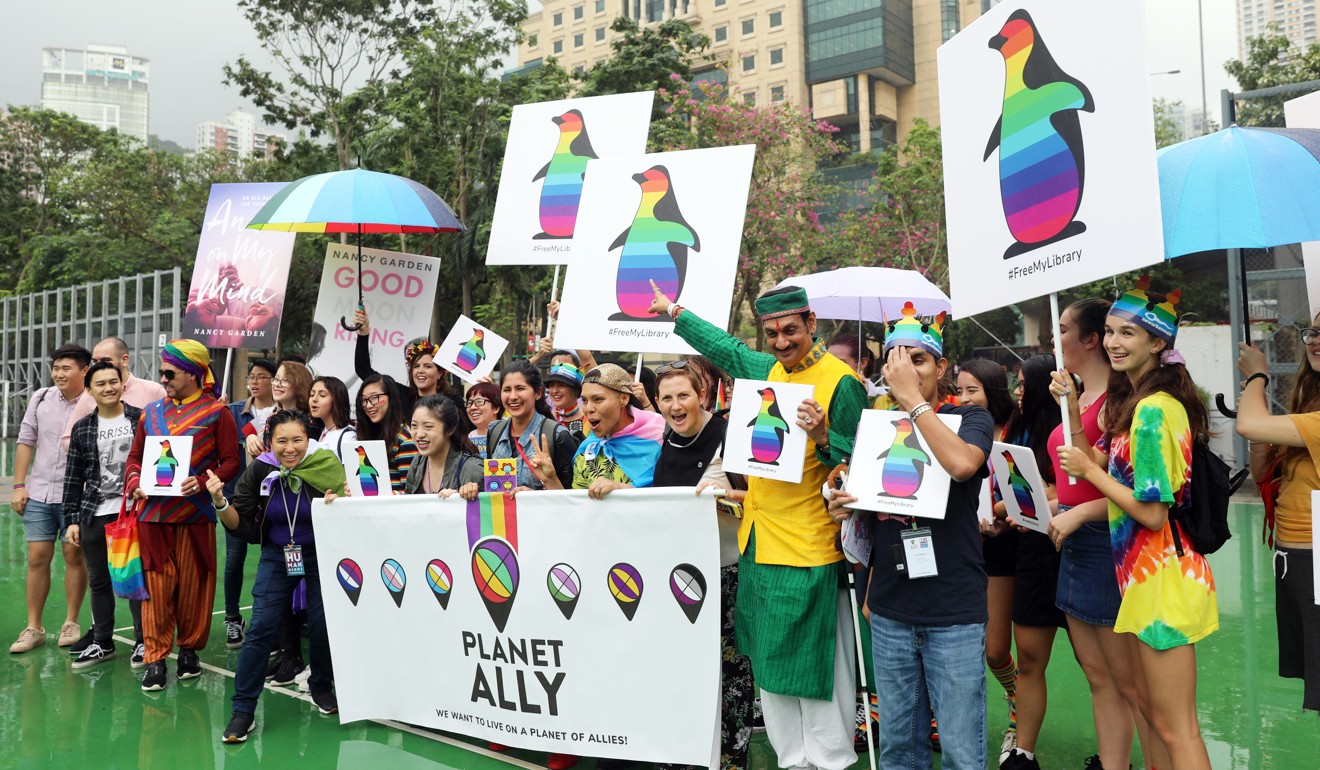
Chun, who studies global business at the same university, says the international companies he has been involved with on his course, including banks HSBC and UBS, have inclusive employment policies, but that’s not always the case with Hong Kong and Chinese employers.
Unfortunately for me, if my life partner dies, all I will be left with is a photo. From a government and legal perspective, I am nothing
Homosexuality was decriminalised in Hong Kong in 1991, and following a recent landmark legal case in the High Court, the government announced in September this year that the city will now recognise overseas same-sex partnerships when granting dependent visas.
It’s progress of a sort in a deeply conservative city – which will host the 2022 Gay Games – but same-sex partnerships are still not recognised for LGBT people born and raised in Hong Kong. It is still not possible for same-sex couples to get married, apply for public housing, or obtain the same legal and tax benefits as heterosexual couples.
“Why do we have to maintain the myth that you have to be 100 per cent masculine or 100 per cent feminine,” says Chun, who does not regard LGBT marriage or access to public housing as the “major issue”.
“Unfortunately for me, if my life partner dies, all I will be left with is a photo,” he says, explaining that as an LGBT person he would have no right to the couple’s jointly owned assets and possessions, nor any right to organise his partner’s funeral or make medical decisions of his behalf as a next of kin. Chun says this is the toughest aspect for him of being a sexual minority in Hong Kong.
First openly gay K-pop singer, MRSHLL, dedicates new release to all the ‘aliens and misfits’
“From a government and legal perspective, I am nothing,” he says.

